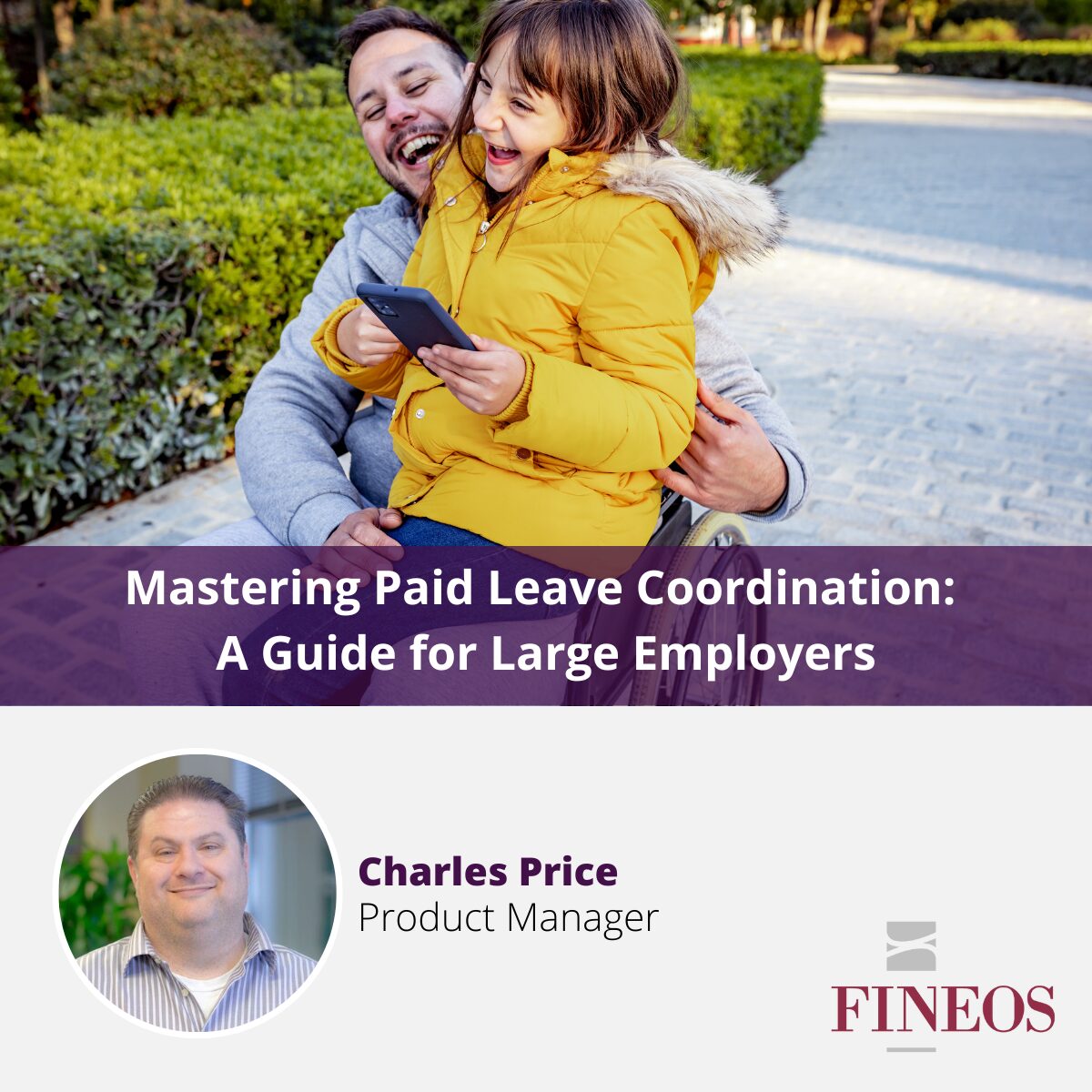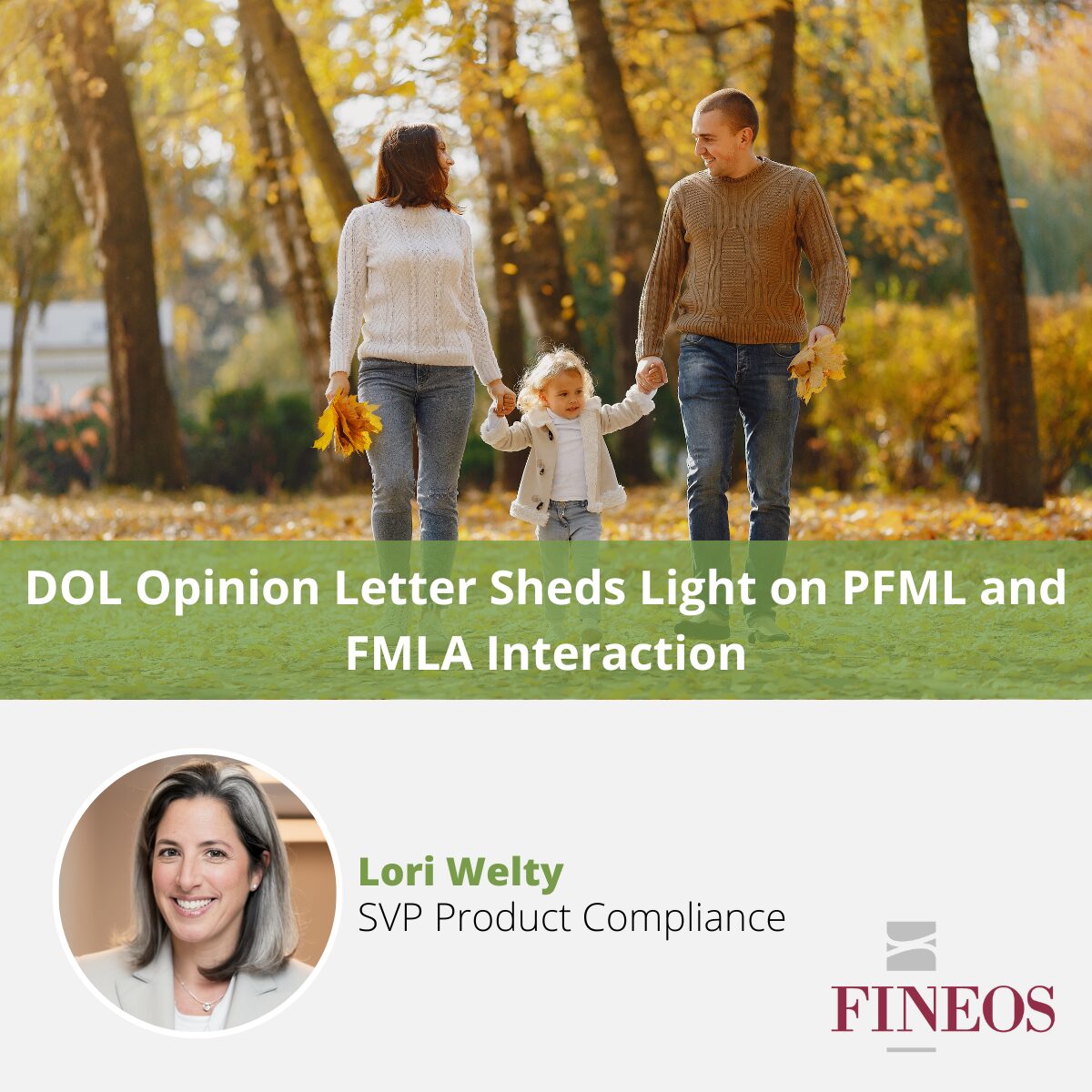When new leave legislation goes into effect, insurance carriers need agile absence management solutions in order to adapt quickly. In this blog, you’ll learn key details on the recently passed voluntary paid leave program in New Hampshire and how FINEOS can help carriers remain competitive.
New Hampshire is the latest state to pass a paid leave law. This unique law is unlike any state paid family and medical leave insurance (FMLI) program or law we’ve seen before. It was passed as part of the New Hampshire budget House Bill 2 and leaves more questions than it answers. But it’s an exciting program nonetheless, largely because it offers a totally different approach to providing people with access to paid family and medical leave. If you are an insurance carrier or a New Hampshire employer, you will want to pay attention to this new law for many reasons.
First and foremost, this law provides insured paid family leave to state employees, deemed the Granite State Paid Family (PFL) Leave Plan. But adding to its uniqueness, the law requires the insurance carrier or carriers that are awarded the state employee insurance contract to allow all public employers and private employers with more than 50 employees to opt into the Granite State PFL Plan policy(ies). Employers who opt-in to the program must participate in payroll deductions, and must provide heightened employment protections, such as health insurance coverage while on leave, plus protection from discrimination and retaliation due to accessing these newly available benefits. This law also provides a tax credit to employers who opt-in to the program, offsetting those obligations with an incentive. Individuals whose employers who do not opt-in to the Granite State PFL Plan or offer equivalent PFL benefits can opt in to the Granite State PFL Plan through the individual pool, and employers are responsible for remitting the premiums (paid by the employee) to the state via a payroll deduction.
The passed version of the bill contains an aggressive timeline: the effective date of the law is July 1, 2021, requiring the RFP process to begin no later than March 31, 2022, with coverage provided by January 1, 2023. Given the many details that need to be hashed out by the New Hampshire Department of Administrative Services, this timeline is ambitious.
The details of the PFL program are typical in that the leave reasons, covered relationships, benefit calculation and duration are similar to other programs. An employee may take up to six (6) weeks of paid leave for new child bonding, care of a family member, and family military exigency. Employees may take paid leave to care for their spouse or domestic partner, child, parent, parent-in-law, and grandparent. FMLI benefits are payable at 60% of the person’s average weekly wage, which is capped at the Social Security taxable wage maximum.
But the details of the opt-in program are novel and require further analysis and clarification. Here are some areas we are exploring and will be seeking further clarification:
- The law mentions establishing a “marketplace in the state for advantageously priced FMLI wage replacement benefits” but also indicates that it will contract with a single carrier, “the successful bidder” for the FMLI benefits. In other places of the bill, it seems multiple carriers might be awarded the contract. The details of how multiple carriers will split the state employee benefits or participate in the marketplace are missing.
- It’s unclear whether the purpose of the “marketplace” is to provide employers and individuals with a single opt-in for one state-chosen carrier or whether an individual can choose among several carrier policies with state-negotiated rates. The bill’s references to FMLI are separated into multiple sections, including the Granite State PFL Plan, taxes, and the Purchasing Pool for Family and Medical Leave Insurance. More analysis is required to fully understand how those sections interact.
- The FMLI benefits offered to state employees and employers who opt in only cover family leave reasons, but the benefits a carrier must offer individuals who opt in include both family leave reasons and medical leave for the individual’s own serious health condition. If this is the case, if an employer opts in to provide the family leave for its employees, can its employees also opt in to gain the added medical leave benefits?
- For employers with more than 50 employees who do not opt in to the Granite State PFL plan, but offer an equivalent coverage, are they required to provide the same anti-retaliation, anti-discrimination, and health insurance coverage as employers who opt in? Are employees of employers with either 1) more than 50 employees who do not opt in to the Granite State PFL plan, and also do not offer equivalent coverage; and 2) fewer than 50 employees covered by the same anti-retaliation, anti-discrimination, and health insurance coverage as public employers and employers who opt in to the program?
- Other areas requiring clarification, which the DAS is authorized to set forth in an upcoming rulemaking are around eligibility, waiting period, and average weekly wage calculation upon which the 60% benefits are calculated.
Finally, it’s important to note that this law authorizes the DAS discretionary authority to make changes to the benefit structure. In other words, this whole program might look very different in a year based on how the DAS decides to craft and implement it.
Regardless of the questions arising from New Hampshire’s FMLI law, the potential of this law and how it will influence the disability and paid leave arena is exciting. This is the first state to provide a structure and marketplace to incentivize voluntary individual paid family leave benefits. Up until this law, voluntary paid family leave insurance was a hypothetical product, but after New Hampshire, we might see a new shift in the private insurance benefits and state paid leave programs.
FINEOS helps insurance carriers remain compliant and competitive by making changes to our product to support new legislation when it’s passed. Learn more about how a modern, integrated disability and absence management solution can provide tangible benefits for your organization here. You can also learn more about the benefits of FINEOS IDAM and the cloud-based FINEOS Platform in this session from the 2021 FINEOS Virtual Exchange.


